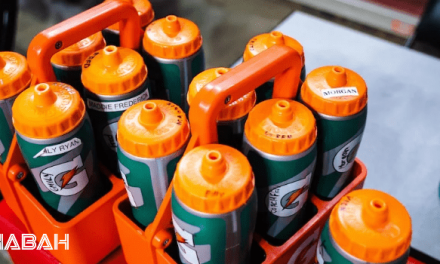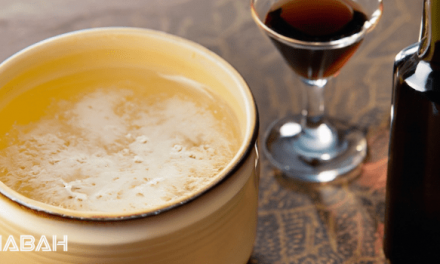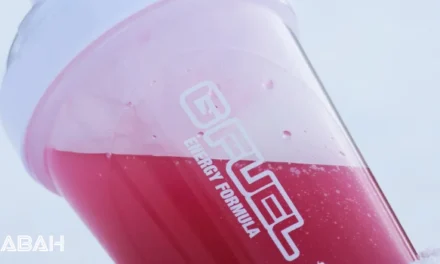Barbican is a popular non-alcoholic malt beverage manufactured by Aujan Industries that originated in the UK and is now also sold widely across the Middle East and parts of Asia. With a barley malt extract base lending it a characteristic beer-like flavor, Barbican’s halal status has been an area of uncertainty and debate among Muslim consumers looking to abide by religious dietary guidelines.
Understanding the Halal Concept in Beverages
As per Islamic laws on permissible foods and drinks, for any consumable item to be considered definitively halal, some key criteria must be met:
- It must not contain any ingredients categorically prohibited according to Quranic texts – primarily pork, alcohol, and certain animal byproducts
- It cannot be contaminated or tainted during production, storage or distribution by contact with najis (impure) substances
- Any ingredients derived from animal sources, such as dairy products or meat-based flavorings, must originate specifically from halal-slaughtered animals
Additionally, to reinforce full halal integrity throughout the supply chain and production cycle, the overall manufacturing processes and materials would require proper halal certification from accredited Islamic agencies.
When it comes to beverages – both soft drinks as well as alcoholic ones – additional considerations influence their permissibility and classification parameters according to different fatwa-issuing governing bodies. These include:
- Actual measurable alcohol content present in the final drink product
- Physiological intoxicating effect upon consumption, if any
- Origins and types of ingredients used as base materials and flavoring additives
- Processing methods employed that might introduce impurities or traces of alcohol from fermentation side reactions
- Official interpretations and rulings on such categories of drinks by country-level religious authorities
In the context of Malaysia, where Barbican is widely sold across grocery stores and consumed in Muslim-majority communities, the Department of Islamic Advancement Malaysia (JAKIM) and National Fatwa Council have laid down clear guidelines classifying permissible non-alcoholic beverages into 3 distinct categories:
| Category | Description | Halal Designation |
|---|---|---|
| 1 | Beverages completely and assuredly free of any alcohol content | Permissible (Halal) |
| 2 | Drinks which contain residual but non-intoxicating traces of alcohol resulting from natural fermentation during manufacturing processes | Impermissible (Haram) |
| 3 | Beverages with no alcohol content but with ingredients or properties that can cause physiological intoxication in excess consumption | Impermissible (Haram) |
The key determining factors, hence, are the presence of alcohol itself versus intoxicating effects thereof, directly impacting religious permissibility rulings for Muslim consumers.
So where exactly do non-alcoholic beer-type beverages and malt-based drinks like Barbican stand when assessing such guidelines? Do they automatically get classified under the impermissible Categories 2 or 3 without further deliberation?
The Great Barbican Controversy in Muslim Nations
Ever since hitting retail shelves across parts of Southeast Asia and the Middle East, Barbican’s precise halal status has been a topic of much discourse and debate amongst Islamic theological circles in countries like Malaysia, UAE, Qatar, Saudi Arabia and Oman where the malt drink continues to be very popular and commonly sold as well as widely consumed by the Muslim populace.
In Malaysia itself, there have emerged somewhat conflicting perspectives pitting the National Fatwa Council versus independent voices from within the country’s Department of Islamic Development (JAKIM). A 2008 fatwa ruling by the Council clearly seemed to imply non-alcoholic beers and malt-based beverages could potentially be deemed haram:
“Following the Federal Territory Mufti’s advice with regard to a non-alcoholic malt drink known as Barbican, the National Fatwa Council in its 73rd meeting on 21 May 2008 made the decision that any food, drink or liquid which contains alcohol or which can bring about intoxication to the one who consumes it is haram (forbidden), even in small amounts. Methods of preparing these drink products whether fermented, distilled or brewed, by whatever percentage ratio of the alcohol, as long as it can cause drunkenness, it is haram.”
So one key question arising was whether nominally non-alcoholic drinks like Barbican truly contain traces of actual alcohol produced as a byproduct during manufacturing stages like fermentation or mashing despite no deliberate alcohol addition. And if so, there remained the doubt whether this might accumulate over consumption to potentially cause physiological intoxication – at which point the drink would clearly violate halal principles.
To address such concerns and provide more nuanced clarity, the National Fatwa Council itself issued a follow-up statement in 2010 further refining the exact scope of its original ruling:
“Any drink that contains liquor that does not cause drunkenness is considered permissible or “halal” for Muslims. Hence, any food or drink containing non-intoxicating content regardless of the percentage of alcohol is also halal.”
This follow-up fatwa implies that supposedly non-alcoholic beverage varieties manufactured via processes like cold-filtration or reverse-osmosis which yield no actual intoxicating alcohol residues in the final product should not be automatically deemed impermissible on those technical grounds alone if all other halal guidelines are adhered to during production.
Sentiments from higher Islamic authorities elsewhere in countries like the UAE, however, seem to lean towards more skepticism by considering the drink’s ingredients and origins foremost rather than just net intoxicant effects alone. According to an official fatwa proclamation in 2011:
“Beverages containing a small percentage of alcohol and originating from an alcoholic base remain haram drinks, even if the percentage of alcohol does not cause intoxication.”
Such strict interpretations would likely mean drinks like Barbican with its core barley malt extract foundation still remain prohibited on source material grounds despite processes to remove residual alcohol itself. Although other nearby Gulf nations appear to largely concur with the Malaysian Fatwa Council’s view permitting non-intoxicating purified malt beverages.
So there remains some ongoing divergence in opinion between theological experts from country to country which adds to the uncertainty around Barbican’s acceptability.
Achieving Definitive Halal Certification – Prospects and Challenges
Given the obvious religious divisions that persist across Muslim geographies, some pertinent questions arise on whether Barbican as a product can pursue and achieve formal halal certification which could help provide definitive clarity on its permissibility while expanding market accessibility and removing ambiguity for consumers in the process.
However, for a drink like Barbican with its composition and processing methodology, attaining such official halal logo approvals faces considerable practical obstacles:
- Lack of transparency on potential traces of left over alcohol residue from initial fermentation of the barley malt wort concentrate used
- Uncertainties around potential residual alcohol contributions from other active ingredients like ginger root or pomegranate juice concentrates
- Use of barley malt extract itself as the primary base component which some Islamic experts argue remains a questionable foundation by source for halal classification
- No dedicated halal-only production lines; Risks of cross-contamination from shared non-halal equipment
- Complex manufacturing processes prone to side reactions producing impurities
Hence even with favorable permissibility rulings from regional fatwa councils, Barbican cannot be considered formally halal compliant without proper third-party halal inspection agencies conducting full audits of:
- Product formulations and all ingredients used
- Production protocols and processing equipment
- Entire supply chain from raw materials to distribution
Moreover, securing formal approval for displaying the halal logo itself necessitates:
- Review and approval by the country-specific official Islamic council setting local standards
- Physical inspection of manufacturing premises and processes by qualified halal certifying bodies
- Ensuring conformity to halal regulations through every stage from sourcing to transportation to warehousing for all ingredients and product contact materials
Such extensive obligations pose notable challenges for relatively more complex beverage products in contrast to everyday staple items. But for Muslim faithful, this level of supply chain integrity verification is vital for total peace of reliance upon a product’s halal status.
Alternatives – Making an Informed Choice Amongst Certified Options
Considering Barbican’s longstanding questionable status even in otherwise permissive jurisdictions like Malaysia, concerned Muslim consumers looking for bonafide halal-sanctioned options in non-alcoholic malt-based drinks similar to Barbican do have a number of certified alternatives to consider, including:
| Beverage | Territory | Governing Body Issuing Certification |
|---|---|---|
| Jus Hiddinge Halal Beer | Malaysia | JAKIM |
| Iran Behnoush Non-Alcoholic Malt Beer | Iran | Ministry of Health (MOH) |
| Aujan Barq Barbican-Style Beverages | UAE | Emirates Authority For Standardization And Metrology (ESMA) |
| Aujan Non-Alcoholic Mocktail Drinks | UAE | Emirates International Accreditation Centre (EIAC) |
With options like these conforming to the strictest Islamic guidelines more readily available, Muslim consumers unsatisfied by Barbican’s ambiguous status or just exercising caution have definitive alternatives they can turn to while staying faithful to religious dictates.
Conclusion – Remaining Vigilant and Exercising Due Diligence
To conclude, Muslim public opinion among religious scholars continues to exhibit some lack of consensus around whether drinks like Barbican with its non-alcoholic yet malt-based formulation ought to be classified as definitively halal or prohibited under Islamic jurisprudence – making its acceptance largely a matter of individual discretion and interpretation flexibility for the time being in absence of formal supply chain certification.
While certain regional fatwa councils have ruled it to be permissible under their guidelines assuming negligible intoxicant alcohol traces, stricter schools of thought remain wary given questionable ingredients and processing methods as well as lack of auditing around tangible halal compliance. Hence faithful Muslims trying to abide by religious precedent would be well advised to consider more prudent precautions, or exercise the agency of choice by opting for some similar beverage substitutes which carry formal halal accreditation as fit for purpose.
At the same time, for the beverage manufacturing industry itself aiming to cater to the large addressable Muslim consumer segment, enhancing supply chain transparency as well as securing accredited halal certifications from internationally recognized Islamic auditing bodies has become imperative. This necessitates greater responsiveness from players like Aujan/Barbican through demonstrable improvements across production protocols, facility compliance as well as quality control and assurance mechanisms that align with established halal standards – granting worldwide Muslim populations the product assurance they seek within their religious obligations.
Frequently Asked Questions – Is Barbican Halal?
Yes, Barbican is considered halal as it is a non-alcoholic malt beverage that does not contain any intoxicants and is permissible for Muslims to consume.
What is the ruling on Barbican by the National Fatwa Council of Malaysia?
The National Fatwa Council of Malaysia has ruled that malt soft drinks like Barbican are permissible and carry the halal logo, making them suitable for consumption by Muslims.
When was Barbican deemed halal by the National Fatwa Council of Malaysia?
Barbican was ruled to be halal by the National Fatwa Council of Malaysia in July 2011.
Where is Barbican sold?
Barbican is sold in various countries, primarily in the Middle East and Gulf countries, and is also available in some other regions including Malaysia and Dubai.
Who produces Barbican?
Barbican is produced by Aujan Coca-Cola Beverages Company, which is a renowned non-alcoholic beverage producer.
Is Barbican considered haram even though it is non-alcoholic?
No, Barbican is not haram as it is a non-alcoholic, malt-based beverage that is permissible for Muslims to consume.
What makes Barbican different from alcoholic malt beverages?
Barbican is different from alcoholic malt beverages as it does not contain any alcohol or intoxicants, making it suitable for consumption by Muslims and individuals seeking non-alcoholic drinks.
Can Barbican be categorized as a non-alcoholic beer?
While Barbican is a non-alcoholic malt beverage, it is not classified as a beer. It is a flavored malt drink that is non-alcoholic and suitable for Muslims to consume.
What are the key considerations for Barbican to be deemed halal?
Barbican is considered halal based on the decision made by the National Fatwa Council of Malaysia and its compliance with the guidelines for non-alcoholic, halal-certified drinks for Muslims.
Is Barbican permissible to be consumed with or as a dessert?
Yes, Barbican can be consumed as a non-alcoholic beverage accompanying a dessert in accordance with halal guidelines for permissible consumables.




